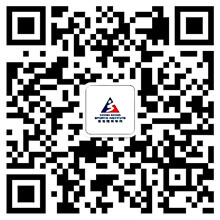News
HKSI International Sports Science Symposium, sponsored by Mr Ming Wai Lau Experts in sports injury gathered to share latest knowledge in injury prevention and management
|
The 2015 HKSI International Sports Science Symposium, with a focus on “Sports Injury Prevention and Management”, was successfully held at Hong Kong Sports Institute (HKSI) on 16 and 17 January. Jointly organised by the HKSI, the Department of Orthopaedics & Traumatology of The Chinese University of Hong Kong, the Hong Kong Association of Sports Medicine and Sports Science and Asian Federation of Sports Medicine, the Symposium was graciously title sponsored by Mr Lau Ming–wai BBS JP. The Symposium brought together 23 overseas and local scholars, professional and doctors to share their views and experiences with nearly 300 participants under one roof. The Symposium provided news and knowledge on the prevention, treatment and rehabilitation of sports–related injuries, covering topics such as drugs in sports, nutritional and psychological issues to injury prevention and recovery; pre–competition screening and intervention; and the treatment and prevention of ACL, hamstring, head and back, upper and lower limbs injuries. Speaking at the Opening Ceremony, Dr Trisha Leahy BBS, Chief Executive of the HKSI, welcomed the renowned experts and guests and said, “It is fantastic to see so many renowned experts joining the workshops and presentations of this year’s Symposium. This will no doubt stimulate lively discussions and heighten our enthusiasm for our work.” Dr Patrick Yung, President Elect of the Asian Federation of Sports Medicine, said during the Ceremony, “Sports injury prevention is one of the most important sectors among sports medicine. Sports injuries bring adverse effects not only to athletes’ physical conditions, but also their mental state and morale. Although injuries are an unavoidable part of sports, there are still aspects for us to work on, especially in terms of the effective prevention and management of injuries. The Symposium is definitely a valuable platform for knowledge and experience exchange and most importantly for promoting awareness of sports injuries.” Prof Frank Fu MH JP, Member of the Sports Commission, said at the Ceremony, “The Symposium is the perfect occasion to create dialogues from different sectors of the sports community for the enhancement of elite training programmes for Hong Kong athletes.” Prof Fu, who is also the Chairman of the Hong Kong Anti–Doping Committee (HKADC), provided insights on the newly adopted “2015 World Anti–Doping Code” by explaining the rule violations and the major changes of the Code. The second day of the Symposium featured four plenary lectures on two specific areas, namely “Pre–competition screening and intervention in preventing sports injuries” and “Hamstring injuries – treatment and injury prevention”. Prof Fabio Pigozzi MD, President of the International Federation of Sports Medicine, introduced and explained the many areas of consensus reached by the panel of FIMS & ACSM on the topic “Advancing the preparticipation physical evaluation – an FIMS & ACSM joint consensus statement”. Prof Carl Askling, Lecturer at the Swedish School of Sport and Health Sciences and the Department of Molecular Medicine and Surgery of the Karolinska Institutet, Stockholm, shared findings on a rehabilitation protocol (the L–Protocol) and hamstring flexibility test (Askling H–test) which both benefit the promotion of return to sports after acute hamstring injury. Prof Chan Kai–ming OBE JP, Chair Professor at the Department of Orthopaedics & Traumatology of The Chinese University of Hong Kong, explored the future direction of managing tendon injuries. In regard to the newly implemented 2015 World Anti–Doping Code, Mr Colin Lo, Assistant Manager (Education) of HKADC, delivered a session on the “Doping control procedure”, indicating the various steps of a doping test and the rights and responsibilities of athletes and support teams in samples collection. Also, Ms Lorraine Ng, Head of Office of HKADC, explained in details to a very captive audience the daily operations and the future plans in anti–doping development. Further to the numerous informative presentations, three pre–symposium workshops were held on the first day, which provided an excellent hands–on educational experience to the participants. To start with, the “Concussion management” workshop led the group through a detailed description of elements in preventing and managing sports concussion. A demonstration on the evidence–based neuromuscular training was carried out to modify abnormal techniques found in jump–landing and other pivoting movements. Last but not least, experts shared practical applications of kinesiology taping. The HKSI International Sports Science Symposium, sponsored by Mr Ming Wai Lau, was also proudly supported by the Hong Kong Coaching Committee, Hong Kong Dietitians Association, Hong Kong Nutrition Association, Physical Fitness Association of Hong Kong, China and Hong Kong Physiotherapy Association. |
 ID: hksportsinstitute
ID: hksportsinstitute


